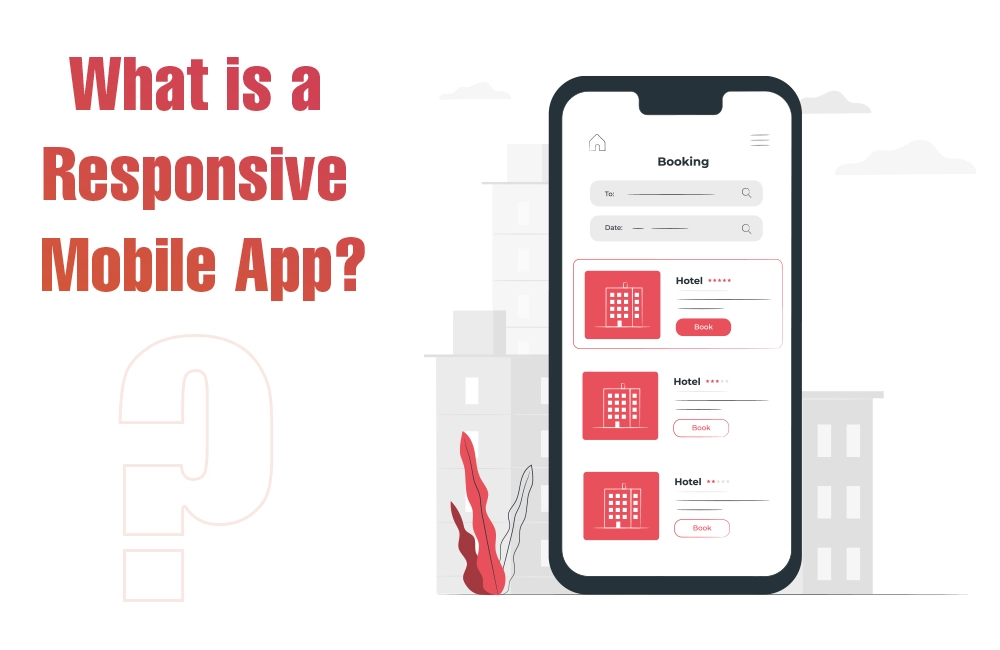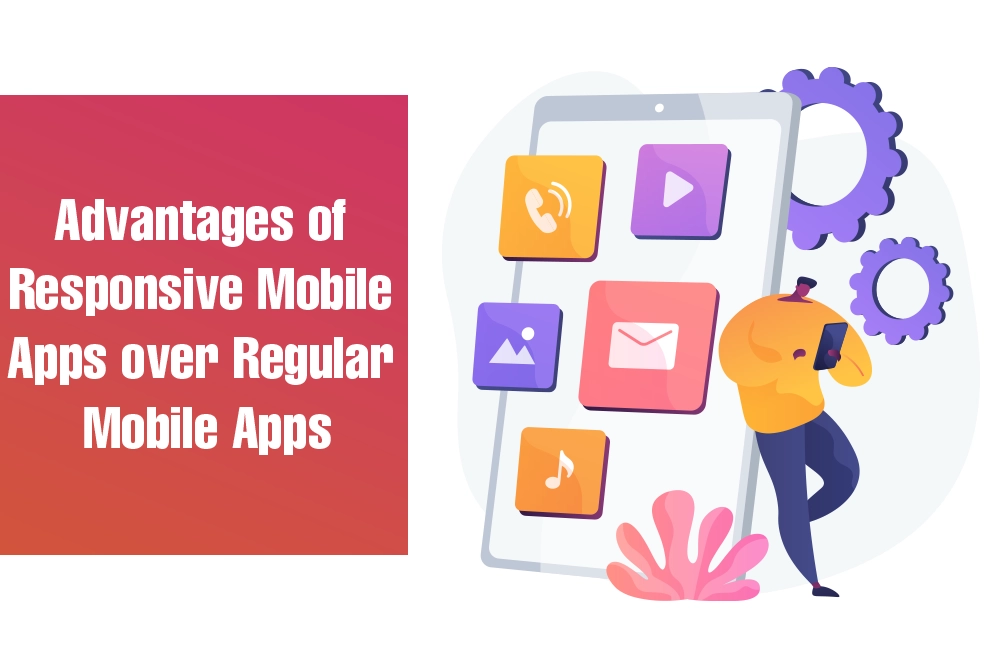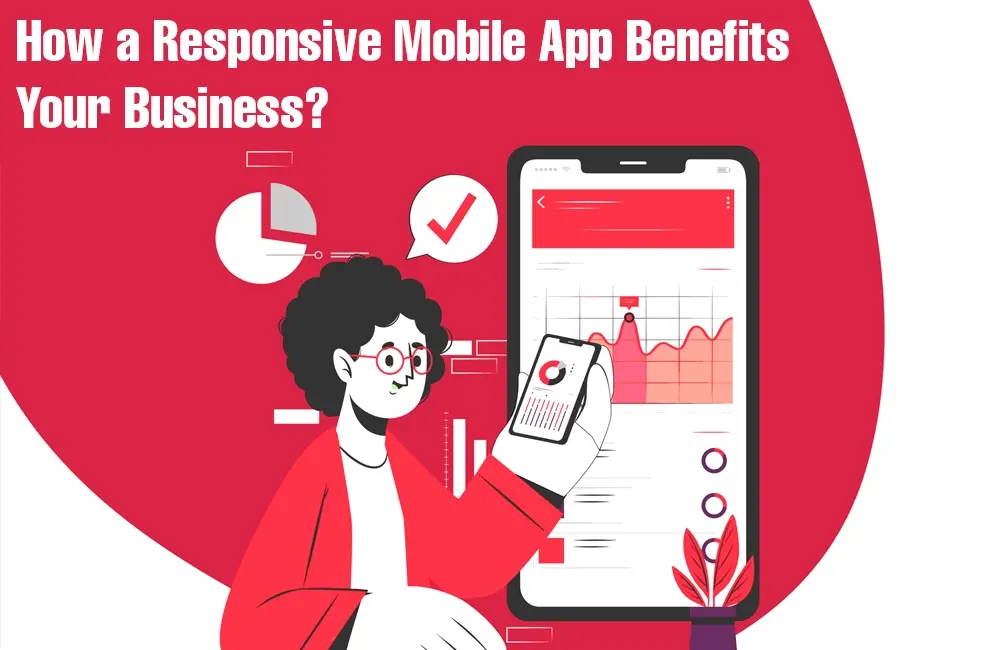One of the key elements that can give your business a competitive edge is a responsive mobile app. Mobile apps have revolutionized how businesses interact with customers, operations management, and boost productivity. In this article, we will explore the importance of responsive mobile apps for businesses and their numerous benefits.
What is a Responsive Mobile App?

Unlike traditional mobile apps that may have fixed layouts and may not display properly on certain devices, responsive apps are built with flexible design elements. This ensures the app’s interface looks and functions consistently, regardless of the device’s screen dimensions. for information and services DoFollow us on Facebook, Instagram and Twitter .
The Importance of Mobile Apps for Businesses
A responsive mobile app can provide a significant competitive advantage in the market, positioning your business ahead of competitors. In today’s digital landscape, where mobile usage is prevalent, businesses that embrace responsive technology stand out as innovators and trendsetters. To more about, why Mobile apps are necessary for your business click here
How Mobile Apps Have Revolutionized Business Operations

In the past decade, mobile apps have transformed the business landscape. They have become integral to the customer journey, allowing companies to connect with their target audience more effectively. From online shopping to customer support, mobile apps have made transactions and interactions faster and more convenient.
The Growing Trend of Responsive Mobile Apps
Responsive mobile apps are now gaining popularity due to their ability to seamlessly adapt to different screen sizes and devices. Unlike regular mobile apps, responsive apps provide a consistent user experience across various platforms, making them highly user-friendly and accessible. This adaptability is particularly beneficial as mobile device users continue to rise.
Definition and Characteristics
A responsive mobile app is designed to adjust its layout and content automatically based on the user’s device, whether a smartphone, tablet, or desktop computer. This ensures that users get the best possible experience, regardless of their screen size. A responsive app’s elements, such as images, text, and buttons, resize and rearrange themselves dynamically to fit the user’s screen perfectly.
Advantages of Responsive Mobile Apps over Regular Mobile Apps

Responsive mobile apps offer several advantages over traditional mobile apps not optimized for different devices. Some of the key benefits include.
Improved User Experience and Accessibility
User Experience refers to a user’s overall experience while interacting with a mobile app developed by experienced mobile app developers of application development company. It encompasses various factors, such as design, ease of use, performance, and the user’s emotional response. A positive user experience leads to higher user satisfaction and increased engagement. Responsive apps provide a consistent and intuitive user experience, reducing bounce rates and increasing user engagement.
Increased Customer Engagement and Retention
Enhanced customer engagement often translates to a positive user experience. Users who are actively engaged with the app are more likely to have a fulfilling and enjoyable time using it. With a seamless user experience, customers are more likely to spend more time on the app and return for future interactions.
Improved Brand Image and Visibility
Customer engagement refers to the level of interaction and involvement a user has with a mobile app. It goes beyond the mere installation of the app and delves into the depth and frequency of user interactions. Offering a well-designed responsive app enhances the perception of your brand, leading to increased brand loyalty and recognition.
Higher Conversion Rates and Revenue Generation

Revenue generation involves earning income from the mobile app through various means by experienced app developers from application development company, such as in-app purchases, advertising, subscriptions, or premium features. Sustainable and scalable revenue streams are essential for the longevity and growth of the app. The ease of use and accessibility of responsive apps lead to higher conversion rates, ultimately boosting revenue.
Competitive Advantage in the Market
Competitive advantage refers to the unique qualities, features, or capabilities that differentiate a mobile app from its competitors. It makes the app stand out and provides added value to users compared to similar apps. A responsive mobile app sets you apart from competitors who may still rely on non-responsive apps, giving you an edge in the market.
How a Responsive Mobile App Benefits Your Business

A responsive mobile app ensures that customers can access your products or services from any device, anytime, without hiccups. Whether they are using a smartphone during their daily commute or a tablet at home, the app’s seamless interface will provide a satisfying user experience.
Increased Customer Engagement and Retention
A clean, intuitive, user-friendly app encourages customers to interact more frequently and spend more time exploring your offerings. This increased engagement leads to higher customer retention rates and a more loyal customer base.
Improved Brand Image and Visibility
A well-designed responsive mobile app reflects positively on your brand image. Customers appreciate a smooth and consistent experience, leading to positive word-of-mouth recommendations and increased brand visibility.
Higher Conversion Rates and Revenue Generation
Responsive apps remove barriers to conversion, such as slow loading times and unresponsive buttons, resulting in a higher likelihood of completing transactions. That, in turn, boosts your revenue and overall business growth.
Competitive Advantage in the Market
Being an early adopter of responsive technology in your industry can give you a significant advantage over competitors. It shows your commitment to innovation and customer satisfaction, setting you apart from businesses that are slower to embrace new trends.
Understanding Your Target Audience
Before developing a responsive mobile app, it’s essential to understand your target audience and their preferences. Conduct market research and gather feedback from potential users to identify the features and functionalities they value the most.
Choosing the Right Platform and Technology
Selecting the right platform and technology stack is crucial for the success of your app. Consider factors such as the complexity of your app, the devices your target audience uses, and the development resources available to you.
Collaborating with Experienced App Developers

Partnering with experienced app developers from application development company is key to creating a high-quality, responsive mobile app. Professional developers can guide you through the process, offering valuable insights and ensuring the final product meets your business objectives.
Regular Updates and Maintenance
Once your app is live, the journey doesn’t end. Regular updates and maintenance by experienced app developers from application development company are necessary to keep your app running smoothly, address issues, and incorporate new features based on user feedback and changing market trends.
Case Studies: Successful Businesses with Responsive Mobile Apps

Company A: Boosting Sales and Customer Loyalty
Company A, an online retailer, saw a significant increase in sales after launching its responsive mobile app. The app’s user-friendly interface and personalized shopping recommendations boosted customer loyalty, with many users returning for repeat purchases.
Company B: Operations Management and Enhancing Productivity
Company B, a service-based business, streamlined its internal operations by developing a responsive app for its employees. The app allowed employees to access resources, communicate with team members, and manage tasks on the go, increasing productivity and efficiency.
Company C: Expanding Market Reach and Global Presence
Company C, a multinational corporation, expanded its market reach through a responsive mobile app that catered by experienced app developers from application development company to diverse languages and cultural preferences. This app enabled the company to connect with customers worldwide and establish a global presence.
How to Ensure a Smooth User Experience with Your Mobile App

Intuitive User Interface and Navigation
A user interface that is intuitive and easy to navigate. Include clear calls to action and minimize unnecessary steps in completing tasks.
Fast Loading Times and Optimal Performance
Optimize your app’s performance to ensure fast loading times and smooth functionality. Slow apps can lead to user frustration and abandonment.
Seamless Integration with Other Business Tools
If your business utilizes other tools or services, ensure that your mobile app seamlessly integrates with them. This allows for a more holistic and efficient user experience.
Addressing Challenges and Potential Risks
Compatibility Issues across Devices, operations management and Operating Systems ensure your responsive app works seamlessly across various devices, operating systems, and screen sizes. Compatibility issues can deter users from engaging with your app.
Data Security and Privacy Concerns
Security should be a top priority when handling user data. Implement robust security measures to protect user information and build customer trust.
Balancing Complexity and Simplicity in Design
While offering valuable features is essential, avoid overwhelming users with a cluttered design. Strike a balance between functionality and simplicity for a seamless experience.
The Future of Responsive Mobile Apps
Emerging Technologies and Trends as technology advances, responsive mobile apps will benefit from cutting-edge innovations. These may include enhanced personalization, augmented reality integrations, and improved AI-driven user experiences.
Predictions for the Mobile App Industry
The mobile app industry is expected to grow exponentially in the coming years. More businesses will invest in responsive apps to stay competitive and meet the evolving demands of their customers.
Conclusion
In conclusion, a responsive mobile app developed by experienced mobile app developers from application development company is a powerful tool for businesses seeking to stay ahead of the curve. With its ability to enhance user experience, increase engagement, improve brand image, and generate higher revenues, a responsive app is no longer a luxury but a necessity. By understanding your audience, collaborating with experienced developers, and addressing potential challenges, you can create a successful, responsive mobile app that propels your business toward greater success.









Leave a Comment